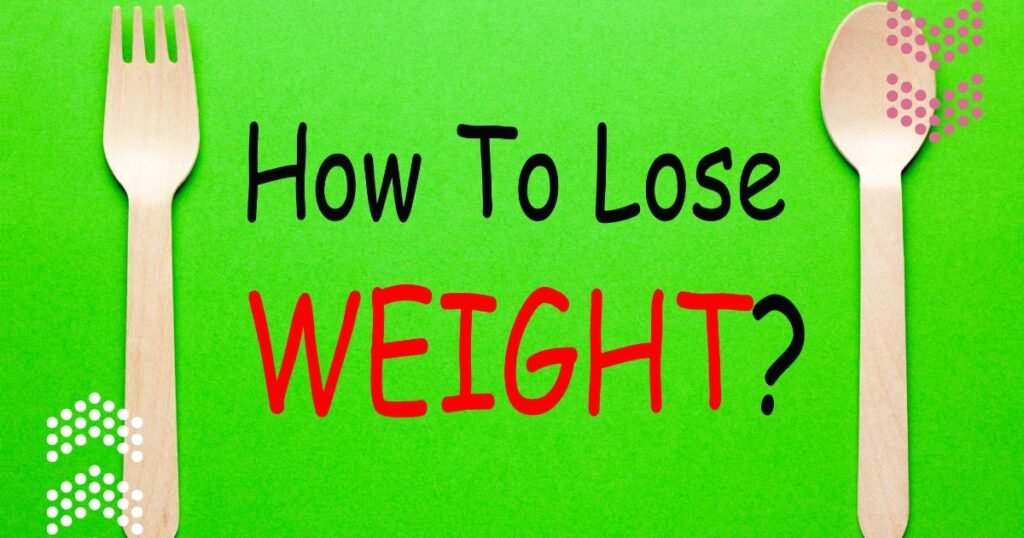The Link Between Stress and Increased Belly Fat in Women
Belly fat is a growing concern for many women. While some may view it as a cosmetic issue, the truth is that excess belly fat poses significant health risks. Among the many factors contributing to this issue, stress plays a pivotal role in its accumulation, particularly in women.
This article will explore how stress impacts belly fat in women, the underlying biological mechanisms, and the steps women can take to reduce both stress and belly fat to improve their overall health.
Understanding Belly Fat in Women
Visceral Fat vs. Subcutaneous Fat
Women often accumulate two types of fat: visceral fat and subcutaneous fat. Visceral fat is fat stored around internal organs like the liver, heart, and intestines. It is more harmful than subcutaneous fat because it increases the risk of metabolic diseases like type 2 diabetes, heart disease, and even some cancers.
Subcutaneous fat, on the other hand, lies just beneath the skin. Though less harmful than visceral fat, excess subcutaneous fat in the abdominal region can still lead to health issues and is often linked to hormonal imbalances and stress. Both types of fat can be exacerbated by long-term stress and poor lifestyle habits.
Why Women Are More Prone to Belly Fat
Women are biologically predisposed to store more fat in the abdominal area compared to men, due to hormonal factors, genetics, and life stages like pregnancy and menopause. For example, during pregnancy, the body naturally shifts to store more fat to support fetal development and provide energy reserves for breastfeeding. Menopause introduces further hormonal changes, especially the decrease in estrogen, leading to fat being stored more readily in the belly.
In addition, women tend to experience more fluctuations in hormone levels, which makes them more susceptible to stress-related weight gain, particularly in the form of visceral fat around the midsection.
How Stress Affects the Female Body
The Stress Response and Cortisol Production
When faced with stress, the human body triggers a “fight-or-flight” response, which is a survival mechanism. During this response, the adrenal glands release cortisol, a hormone that helps the body manage stress by making energy available quickly. However, when stress becomes chronic, cortisol levels remain elevated for long periods, which can cause various health issues, including weight gain.
For women, prolonged exposure to elevated cortisol levels has been directly linked to increased fat storage, particularly in the abdominal area. This is because cortisol encourages the body to store energy in the form of fat, anticipating the need for energy in the face of stress.
Why Chronic Stress Is Dangerous
Chronic stress keeps cortisol levels elevated, which means the body remains in a state of constant “survival mode.” When this happens, it signals the body to store fat, especially around vital organs. This protective mechanism is beneficial in short bursts, but when cortisol levels remain high over long periods, it leads to an accumulation of visceral fat.
Chronic stress doesn’t just affect weight—it can also increase the risk of serious conditions like cardiovascular disease, metabolic syndrome, and depression. Managing stress is, therefore, crucial for overall health, particularly for women who are biologically more prone to cortisol-induced fat storage.
The Role of Hormones in Stress and Fat Storage
Hormonal fluctuations play a crucial role in how women’s bodies respond to stress. Elevated levels of cortisol not only trigger fat storage but also impact other hormones, including insulin and estrogen. Insulin, for example, helps regulate blood sugar levels, but when stress is chronic, insulin sensitivity decreases, leading to higher blood sugar levels and more fat storage.
Estrogen also plays a part in where fat is stored. Before menopause, women tend to store more fat in the hips and thighs, but as estrogen levels drop, fat is more likely to accumulate in the abdominal area.
The Science Behind Cortisol and Belly Fat
Cortisol’s Role in Fat Storage
Cortisol is one of the primary stress hormones, and its function is to help the body cope with stressful situations. In short-term stress scenarios, cortisol provides energy by breaking down fats and sugars. However, in chronic stress situations, cortisol causes the body to store more fat, particularly around the abdomen. This is because elevated cortisol levels trigger the body to hold onto energy (fat), anticipating future stressful events that may require it.
Additionally, cortisol is known to interfere with other hormones that regulate hunger and appetite, such as ghrelin and leptin. This disruption often leads to overeating and the increased likelihood of gaining weight in the abdominal region.
Cortisol and Appetite
Chronic stress often leads to an increase in appetite. Cortisol stimulates hunger, particularly for foods that are high in fat and sugar. These types of comfort foods provide temporary emotional relief but lead to increased calorie intake, making it difficult for women to manage their weight.
Furthermore, cortisol slows down the metabolism, causing calories to be stored as fat rather than being used for energy. This is why women who experience long periods of stress tend to gain weight, particularly in the belly region.
Why Belly Fat Accumulates in Women
Women’s bodies are biologically predisposed to store fat in the abdominal area, but when stress is added to the equation, the body’s fat storage systems go into overdrive. As stress increases cortisol levels, more fat is directed to the belly area.
This fat accumulation is not only a cosmetic issue; it can lead to significant health risks, such as heart disease, high blood pressure, and even some types of cancer. Reducing stress is one of the most effective ways to decrease belly fat and protect long-term health.
Lifestyle Factors Contributing to Stress-Related Belly Fat
Poor Sleep and Belly Fat
One of the most overlooked contributors to belly fat is poor sleep. Chronic stress often leads to sleep disturbances, such as insomnia or fragmented sleep. Lack of sleep further elevates cortisol levels, creating a vicious cycle of stress and weight gain.
Studies show that women who get less than 7-8 hours of quality sleep each night are more likely to have higher cortisol levels, which can directly lead to the accumulation of belly fat.
Stress Eating and Emotional Eating in Women
Stress eating is common among women, especially those dealing with high levels of chronic stress. Emotional eating often involves consuming high-fat, high-sugar foods that temporarily make us feel better but lead to weight gain over time. This form of coping is linked to the body’s natural reaction to stress, where it craves comfort foods to soothe emotional turmoil.
The combination of increased appetite from cortisol and the inclination toward comfort foods can lead to significant weight gain, primarily in the belly area. Breaking this cycle requires a conscious effort to manage stress and make healthier food choices.
The Impact of Sedentary Lifestyles
Many women facing high levels of stress become less physically active. A sedentary lifestyle exacerbates weight gain because it decreases the body’s ability to burn calories. When combined with stress eating and high cortisol levels, the result is often an increase in belly fat.
Incorporating daily physical activity, such as walking, strength training, or yoga, can help reduce cortisol levels and prevent the accumulation of stress-related belly fat.
How to Manage Stress to Reduce Belly Fat
Stress-Relieving Techniques for Women
There are several effective stress management techniques that women can adopt to reduce cortisol levels and prevent the accumulation of belly fat. These include:
- Meditation: Practicing mindfulness meditation can significantly lower cortisol levels and improve overall well-being.
- Yoga: This mind-body practice combines physical postures, breathing exercises, and relaxation techniques to reduce stress and promote fat loss.
- Deep Breathing: Simple deep breathing exercises can help activate the parasympathetic nervous system, reducing cortisol levels and calming the mind.
The Importance of Sleep
Getting enough sleep is critical for managing stress and controlling belly fat. Quality sleep helps regulate cortisol levels and balances other hormones, such as leptin and ghrelin, that influence appetite and fat storage. Prioritizing 7-9 hours of sleep each night can have a profound impact on weight management.
Exercise and Its Role in Reducing Stress and Belly Fat
Physical activity is one of the most effective ways to reduce stress and control belly fat. Engaging in regular exercise, particularly cardiovascular exercises like running or walking, can lower cortisol levels and help burn fat. Strength training is also beneficial, as it helps build lean muscle mass, which boosts metabolism and promotes fat loss.
Healthy Eating Habits to Combat Stress
Nutrition plays a vital role in stress management. Eating a balanced diet rich in whole grains, lean proteins, and healthy fats can help control cortisol levels. Certain foods, like leafy greens, nuts, and fish, have anti-inflammatory properties that may help reduce the effects of stress on the body.
In contrast, processed foods and sugar can increase cortisol levels and lead to more fat storage, particularly in the abdominal area. Making healthier food choices can be a powerful way to combat stress and manage belly fat.
Supplements and Natural Remedies for Stress
Herbal Supplements for Stress Relief
Several herbal supplements are known to lower cortisol levels and help manage stress, which can reduce belly fat. Popular choices include Ashwagandha and Rhodiola, which have been shown to reduce cortisol and improve stress resilience.
Vitamins and Minerals for Stress and Fat Control
Certain vitamins and minerals, such as magnesium, vitamin D, and omega-3 fatty acids, are known to support stress management and help control belly fat. These nutrients regulate cortisol production, support metabolic health, and reduce inflammation, all of which can help reduce stress-related belly fat.
The Long-Term Health Risks of Belly Fat
Increased Risk of Metabolic Syndrome
Excess belly fat, particularly visceral fat, is linked to an increased risk of developing metabolic syndrome. This cluster of conditions includes high blood pressure, insulin resistance, and abnormal cholesterol levels, all of which increase the risk of heart disease, stroke, and type 2 diabetes.
Impact on Mental Health
In addition to physical health risks, belly fat can also negatively impact mental health. Many women with excess belly fat struggle with body image issues, leading to low self-esteem, anxiety, and depression. These mental health challenges can create a vicious cycle, where stress further contributes to weight gain.
Conclusion
Chronic stress is a significant contributor to belly fat in women. By managing stress through lifestyle changes, exercise, and proper nutrition, women can reduce belly fat and improve their overall health. Reducing cortisol levels through stress management practices can lead to not only a healthier body but also a healthier mind.
For more in-depth guidance, visit our page on Cortisol and Stress in Women to learn how stress influences weight gain and what you can do to manage it.
FAQs
Can belly fat caused by stress be reduced?
Yes, belly fat caused by stress can be reduced through stress management techniques, regular exercise, and a balanced diet. Lowering cortisol levels is key to reducing fat accumulation in the abdominal area.
How does cortisol affect women differently from men?
Cortisol tends to affect women more by directing fat storage to the abdominal area, while men often store fat in other regions. This makes it harder for women to lose belly fat, especially during periods of chronic stress.
What foods help combat stress-induced belly fat?
Foods rich in fiber, lean proteins, and healthy fats, such as salmon, quinoa, and leafy greens, are excellent for stabilizing cortisol levels and preventing stress-related belly fat gain. These foods help regulate hormones and reduce inflammation.
Encouragement
Browse our website to explore ShapioX’s resources, including recipes, fitness gear, weight loss calculators, and our blog. These tools can help you achieve your health and fitness goals while managing stress effectively.


